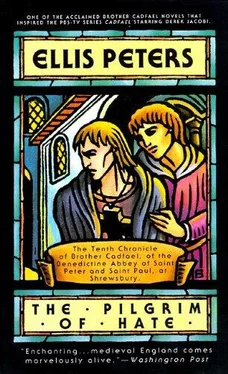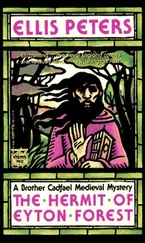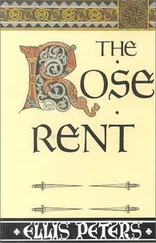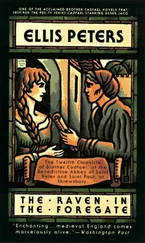Ellis Peters - The Pilgrim of Hate
Здесь есть возможность читать онлайн «Ellis Peters - The Pilgrim of Hate» весь текст электронной книги совершенно бесплатно (целиком полную версию без сокращений). В некоторых случаях можно слушать аудио, скачать через торрент в формате fb2 и присутствует краткое содержание. Жанр: Исторический детектив, на английском языке. Описание произведения, (предисловие) а так же отзывы посетителей доступны на портале библиотеки ЛибКат.
- Название:The Pilgrim of Hate
- Автор:
- Жанр:
- Год:неизвестен
- ISBN:нет данных
- Рейтинг книги:4 / 5. Голосов: 1
-
Избранное:Добавить в избранное
- Отзывы:
-
Ваша оценка:
- 80
- 1
- 2
- 3
- 4
- 5
The Pilgrim of Hate: краткое содержание, описание и аннотация
Предлагаем к чтению аннотацию, описание, краткое содержание или предисловие (зависит от того, что написал сам автор книги «The Pilgrim of Hate»). Если вы не нашли необходимую информацию о книге — напишите в комментариях, мы постараемся отыскать её.
The Pilgrim of Hate — читать онлайн бесплатно полную книгу (весь текст) целиком
Ниже представлен текст книги, разбитый по страницам. Система сохранения места последней прочитанной страницы, позволяет с удобством читать онлайн бесплатно книгу «The Pilgrim of Hate», без необходимости каждый раз заново искать на чём Вы остановились. Поставьте закладку, и сможете в любой момент перейти на страницу, на которой закончили чтение.
Интервал:
Закладка:
She was out of the door and spreading appreciative nostrils for the scent of the sunlit herbs, when she looked back to add: “There’s others among them may call themselves pilgrims as loud and often as they will, but I wouldn’t trust one or two of them as far as I could throw them. I suppose rogues will make their way everywhere, even among the saints.”
“As long as the saints have money in their purses, or anything about them worth stealing,” agreed Cadfael wryly, “rogues will never be far away.”
Whether Mistress Weaver did speak to her strange travelling companion or not, it was he who arrived at Cadfael’s workshop within half an hour, before ever the boy Rhun showed his face. Cadfael was back at his weeding when he heard them come, or heard, rather, the slow, patient footsteps of the sturdy one stirring the gravel of his pathways. The other made no sound in walking, for he stepped tenderly and carefully in the grass border, which was cool and kind to his misused feet. If there was any sound to betray his coming it was the long, effortful sighing of his breath, the faint, indrawn hiss of pain. As soon as Cadfael straightened his back and turned his head, he knew who came.
They were much of an age, and even somewhat alike in build and colouring, above middle height but that the one stooped in his laboured progress, brown-haired and dark of eye, and perhaps twenty-five or twenty-six years old. Yet not so like that they could have been brothers or close kin. The hale one had the darker complexion, as though he had been more in the air and the sun, and broader bones of cheek and jaw, a stubborn, proud, secret face, disconcertingly still, confiding nothing. The sufferer’s face was long, mobile and passionate, with high cheekbones and hollow cheeks beneath them, and a mouth tight-drawn, either with present pain or constant passion. Anger might be one of his customary companions, burning ardour another. The young man Matthew stalked at his heels mute and jealously watchful in attendance on him.
Mindful of Mistress Weaver’s loquacious confidences, Cadfael looked from the scarred and swollen feet to the chafed neck. Within the collar of his plain dark coat the votary had wound a length of linen cloth, to alleviate the rubbing of the thin cord from which a heavy cross of iron, chaced in a leaf pattern with what looked like gold, hung down upon his breast. By the look of the seam of red that marked the linen, either this padding was new, or else it had not been effective. The cord was mercilessly thin, the cross certainly heavy. To what desperate end could a young man choose so to torture himself? And what pleasure did he think it could give to God or Saint Winifred to contemplate his discomfort?
Eyes feverishly bright scanned him. A low voice asked: “You are Brother Cadfael? That is the name Brother Hospitaller gave me. He said you would have ointments and salves that could be of help to me. So far,” he added, eyeing Cadfael with glittering fixity, “as there is any help anywhere for me.”
Cadfael gave him a considering look for that, but asked nothing until he had marshalled the pair of them into his workshop and sat the sufferer down to be inspected with due care. The young man Matthew took up his stand beside the open door, careful to avoid blocking the light, but would not come further within.
“You’ve come a fairish step unshod,” said Cadfael, on his knees to examine the damage. “Was such cruelty needful?”
“It was. I do not hate myself so much as to bear this to no purpose.” The silent youth by the door stirred slightly, but said no word. “I am under vow,” said his companion, “and will not break it.” It seemed that he felt a need to account for himself, forestalling questioning. “My name is Ciaran, I am of a Welsh mother, and I am going back to where I was born, there to end my life as I began it. You see the wounds on my feet, brother, but what most ails me does not show anywhere upon me. I have a fell disease, no threat to any other, but it must shortly end me.”
And it could be true, thought Cadfael, busy with a cleansing oil on the swollen soles, and the toes cut by gravel and stones. The feverish fire of the deep-set eyes might well mean an even fiercer fire within. True, the young body, now eased in repose, was well-made and had not lost flesh, but that was no sure proof of health. Ciaran’s voice remained low, level and firm. If he knew he had his death, he had come to terms with it.
“So I am returning in penitential pilgrimage, for my soul’s health, which is of greater import. Barefoot and burdened I shall walk to the house of canons at Aberdaron, so that after my death I may be buried on the holy isle of Ynys Enlli, where the soil is made up of the bones and dust of thousands upon thousands of saints.”
“I should have thought,” said Cadfael mildly, “that such a privilege could be earned by going there shod and tranquil and humble, like any other man.” But for all that, it was an understandable ambition for a devout man of Welsh extraction, knowing his end near. Aberdaron, at the tip of the Lleyn peninsula, fronting the wild sea and the holiest island of the Welsh church, had been the last resting place of many, and the hospitality of the canons of the house was never refused to any man. “I would not cast doubt on your sacrifice, but self-imposed suffering seems to me a kind of arrogance, and not humility.”
“It may be so,” said Ciaran remotely. “No help for it now, I am bound.”
“That is true,” said Matthew from his corner by the door. A measured and yet an abrupt voice, deeper than his companion’s. “Fast bound! So are we both, I no less than he.”
“Hardly by the same vows,” said Cadfael drily. For Matthew wore good, solid shoes, a little down at heel, but proof against the stones of the road.
“No, not the same. But no less binding. And I do not forget mine, any more than he forgets his.”
Cadfael laid down the foot he had anointed, setting a folded cloth under it, and lifted its fellow into his lap. “God forbid I should tempt any man to break his oath. You will both do as you must do. But at least you may rest your feet here until after the feast, which will give you three days for healing, and here within the pale the ground is not so harsh. And once healed, I have a rough spirit that will help to harden your soles for when you take to the road again. Why not, unless you have forsworn all help from men? And since you came to me, I take it you have not yet gone so far. There, sit a while longer, and let that dry.”
He rose from his knees, surveying his work critically, and turned his attention next to the linen wrapping about Ciaran’s neck. He laid both hands gently on the cord by which the cross depended, and made to lift it over the young man’s head.
“No, no, let be!” It was a soft, wild cry of alarm, and Ciaran clutched at cross and cord, one with either hand, and hugged his burden to him fiercely. “Don’t touch it! Let it be!”
“Surely,” said Cadfael, startled, “you may lift it off while I dress the wound it’s cost you? Hardly a moment’s work, why not?”
“No!” Ciaran fastened both hands upon the cross and hugged it to his breast. “No, never for a moment, night or day! No! Let it alone!”
“Lift it, then,” said Cadfael resignedly, “and hold it while I dress this cut. No, never fear, I’ll not cheat you. Only let me unwind this cloth, and see what damage you have there, hidden.”
“Yet he should doff it, and so I have prayed him constantly,” said Matthew softly. “How else can he be truly rid of his pains?”
Cadfael unwound the linen, viewed the scored line of half-dried blood, still oozing, and went to work on it with a stinging lotion first to clean it of dust and fragments of frayed skin, and then with a healing ointment of cleavers. He refolded the cloth, and wound it carefully under the cord. “There, you have not broken faith. Settle your load again. If you hold up the weight in your hands as you go, and loosen it in your bed, you’ll be rid of your gash before you depart.”
Читать дальшеИнтервал:
Закладка:
Похожие книги на «The Pilgrim of Hate»
Представляем Вашему вниманию похожие книги на «The Pilgrim of Hate» списком для выбора. Мы отобрали схожую по названию и смыслу литературу в надежде предоставить читателям больше вариантов отыскать новые, интересные, ещё непрочитанные произведения.
Обсуждение, отзывы о книге «The Pilgrim of Hate» и просто собственные мнения читателей. Оставьте ваши комментарии, напишите, что Вы думаете о произведении, его смысле или главных героях. Укажите что конкретно понравилось, а что нет, и почему Вы так считаете.












